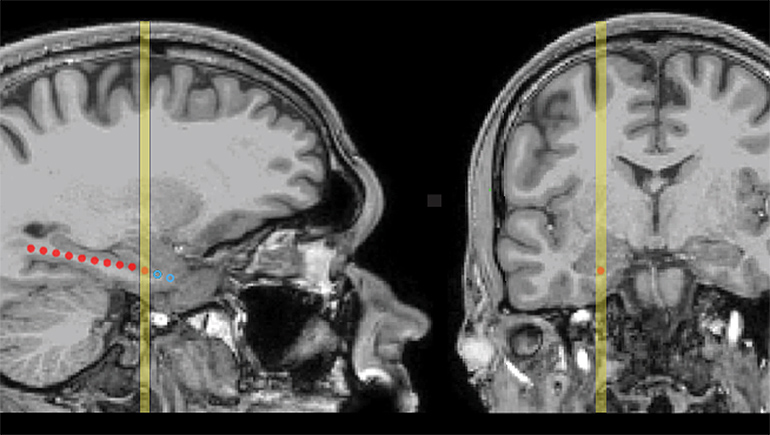A new study looks deep inside the brain, where previous learning was reactivated during sleep, resulting in improved memory.
Neuroscientists from Northwestern University teamed up with clinicians from the University of Chicago Epilepsy Center to study the brain electrical activity in five of the center’s patients in response to sounds administered by the research team as part of a learning exercise.
Recording activity from inside the brain
The five patients who volunteered to participate in the study had electrode probes implanted into the brain for the purpose of investigating potential treatments for their seizure disorders.
While prior studies have used EEG recordings captured by electrodes on the head to measure memory processing during sleep, this is the first study to record such electrical activity from inside the brain.
The study found participants significantly improved their performance in a recall test the next morning. The mapped brain activity allowed the researchers to take a big step forward in understanding how memory storage works by providing visual data identifying the areas of the brain engaged in the process of overnight memory storage.
Although the number of patients studied was necessarily small, strong conclusions were possible because all five patients showed the same patterns of memory improvement and electrical activity.
“We are investigating how people manage to remember the things they’ve learned, rather than forgetting them,” said Ken Paller, director of the Cognitive Neuroscience Program at Northwestern and senior researcher on the study. “Our view is that sleep contributes to that ability.”
Paller is a professor of psychology and the James Padilla Chair in Arts and Science at Northwestern’s Weinberg College of Arts and Sciences.


